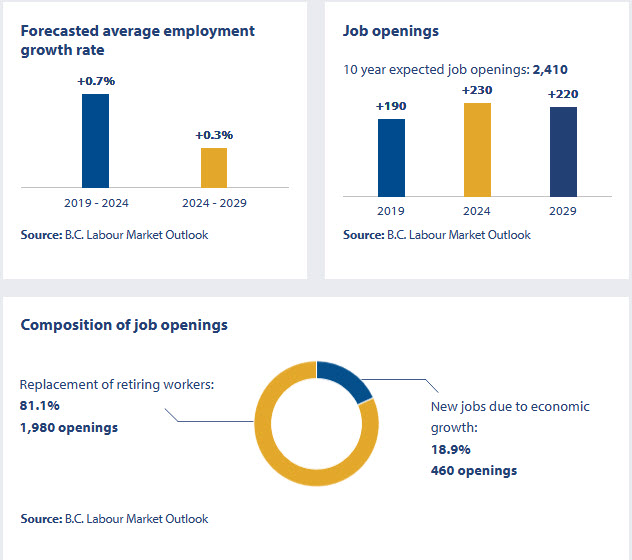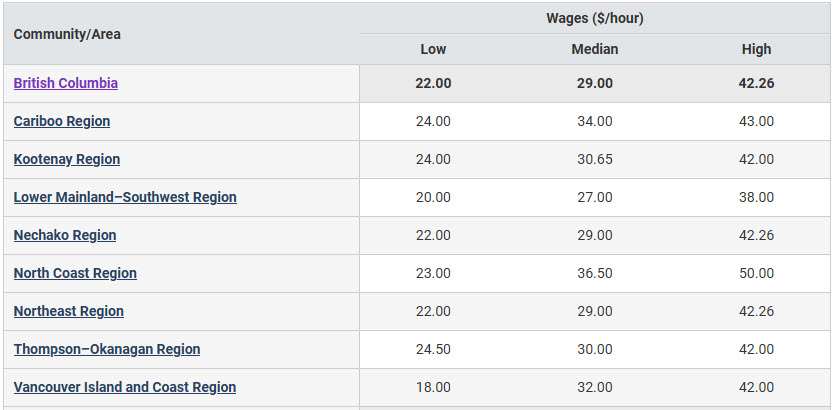Working as a Welder

Industry Overview
Technological improvements such as increased automation are decreasing the number of new jobs for welders. However, highly skilled welding machine setters and operators may see an increase in demand as a result of these new technologies.
The greatest demand for welder jobs will be in construction-related manufacturing, such as architectural and structural metal fabrication. There are limited employment opportunities for welders in the wood product manufacturing sector.
Source: WorkBC
Job Outlook in BC
Welders and related machine operators

Chart from Work BC
WorkBC provides job openings in BC regions from 2019-2029
| Region | Employment in 2019 |
Average Annual Employment Growth |
Expected Number of Job Openings |
| Vancouver Island | 1,340 | 0.7% | 370 |
| Lower Mainland/ Southwest | 4,690 | 0.4% | 1,190 |
| Thompson-Okanagan | 1,210 | 0.5% | 340 |
| Kootenay | 680 | 0.0% | 150 |
| Cariboo | 730 | 0.5% | 150 |
| North Coast & Nechako | 400 | -0.4% | 40 |
| Northeast | 420 | 2.3% | 190 |
You can learn more about working as a welder in BC from:
Types of Employers
As a welder you may work for:
- manufacturing / factories
- machine shops
- construction sites
- oil and gas rigs and pipelines
- welding contractors and welding shops
- self employed
Those working in manufacturing may work at: sawmills; pulp and paper mills; mines; shipbuilding or aircraft manufacturing facilities; other metal products.
Salary
In BC, the median annual salary for welders and related machine operators is $60,482. Your salary depends on job requirements, work conditions and location.
Journey-level welders often earn around $19 to $32 an hour. Highly experienced welders can earn $50 an hour, depending on what type of welding is required. Those working on pipelines in remote locations may make up to $100,000 a year.
Sources: WorkBC and Career Cruising
In BC regions you can expect to make

Source: Job Bank Wage Report
Working Hours
Most welders work 40 hours per week. If you are working in mills, factories and processing plants you may be required to work nights / weekends, or do shift work.
Welders in the construction industry often relocate to different job sites, sometimes in remote regions. Short periods of unemployment between projects are common for these workers.
